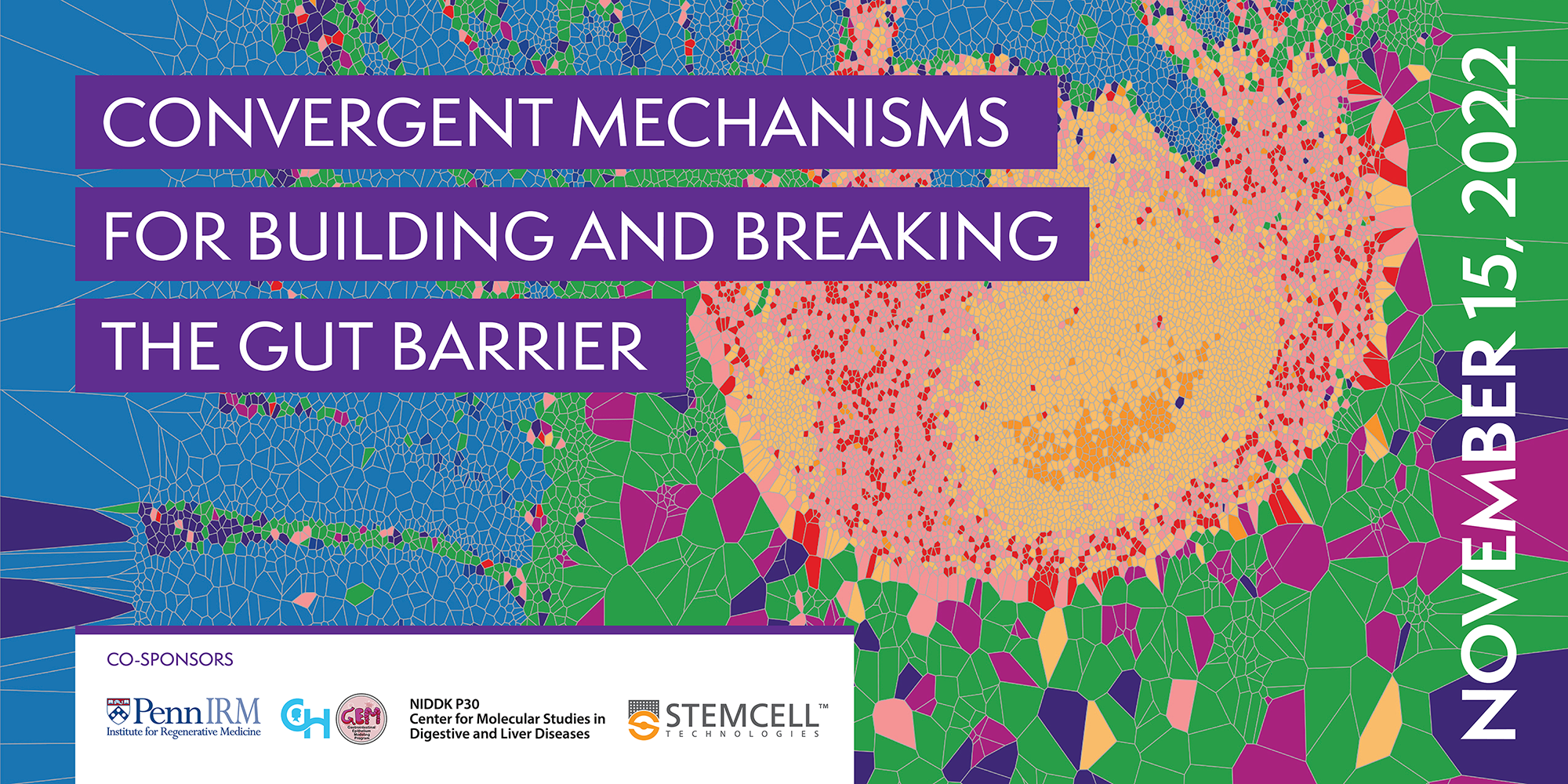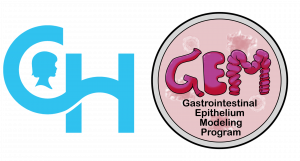When:
November 15, 2022 @ 10:30 am – 5:00 pm
2022-11-15T10:30:00-05:00
2022-11-15T17:00:00-05:00

REGISTER | SCHEDULE | SPEAKERS | ABSTRACTS | SPONSORS
The IRM will host our fall symposium, Convergent Mechanisms for Building and Breaking the Gut Barrier, on Tuesday, November 15, 2022 in the Smilow Center for Translational Research Rubenstein Auditorium and Commons. This in person event will explore several facets of the critical gut barrier niche, including the stem cell identities and developmental pathways that comprise the barrier, barrier regeneration, and the role of stem cells in malignant transformations.
We invite trainees to submit abstracts for posters and lightning talks!
Need directions to Smilow? Click here.
Schedule
Download a PDF version of our schedule.
Speakers
- Linda Samuelson, PhD (University of Michigan)
- Kelley Yan, MD, PhD (Columbia)
- Klaus Kaestner, PhD (Penn)
- Mike Verzi, PhD (Rutgers)
- Nicole Belle, MD, PhD (Penn)
- Maayan Levy, PhD (Penn)
- Luke Dow, PhD (Cornell)
- Omer Yilmaz, MD, PhD (MIT)
Abstracts
Students and postdocs: we are looking for lightning talk and poster presenters! Lightning talks are 90 second, 1 slide “pitches” of your work to the gathered audience. If you are conducting research into an area related to our symposium theme, submit an abstract to Diona.Cashioli@pennmedicine.upenn.edu by Friday, Nov 4 at 5 PM. Abstracts must include a title, authors and affiliations, and no more than 250 words describing the research.
Posters from trainees studying topics related to the symposium theme are welcome! Please submit your name, affiliations, authors, and title to Diona.Cashioli@pennmedicine.upenn.edu by Friday, Nov 4 at 5 PM. You do not need to submit a full abstract unless you wish to be considered for a lightning talk.
Sponsors
Thank you to our generous sponsors:
 |
The mission of the Center for Molecular Studies in Digestive and Liver Diseases (CMSDLD) is to unite investigators with interests in digestive and liver disease in the exploration of creative experimental approaches as well as to stimulate others to enter these areas of research. The scientific focus of the Center revolves around host-environmental interactions in digestive and liver disease research from bench to bedside. |
 |
The Gastrointestinal Epithelium Modeling (GEM) Program is a collaborative research effort designed to accelerate discovery and innovation using patient-derived organoids (PDO). The GEM Program supports bi-directional, bench-to-bedside research with the goal of developing new therapies for pediatric gastrointestinal diseases. As part of the Division of Gastroenterology, Hepatology and Nutrition, the GEM Program is comprised of scientists and clinicians committed to investigating the pathophysiology of diseases including eosinophilic esophagitis (EoE), inflammatory bowel disease (IBD), Hirschsprung disease and celiac disease. |
 |
STEMCELL Technologies provides high-quality cell culture media, cell separation technologies, instruments, accessory products, and educational resources to scientists around the world working on stem cell, immunology, cancer, regenerative medicine, and cellular therapy research. STEMCELL Technologies is dedicated to improving lives through advanced knowledge and scientific discovery, through their commitment to fostering diversity and inclusion in STEM and the life sciences industry, and through investments in sustainability, community, and social responsibility. |




